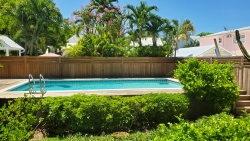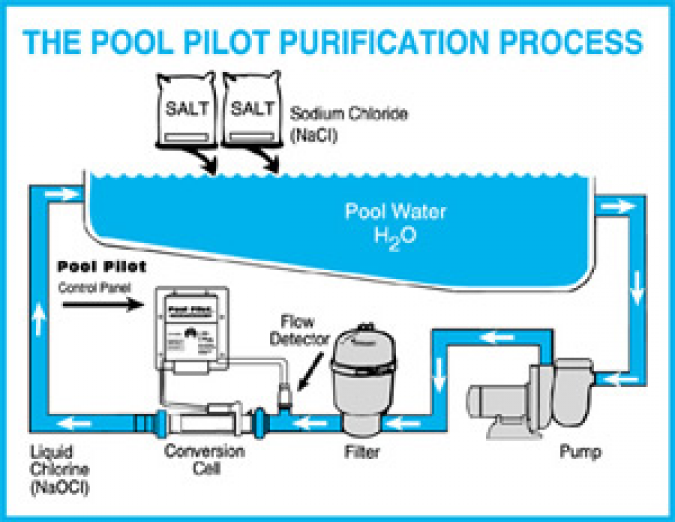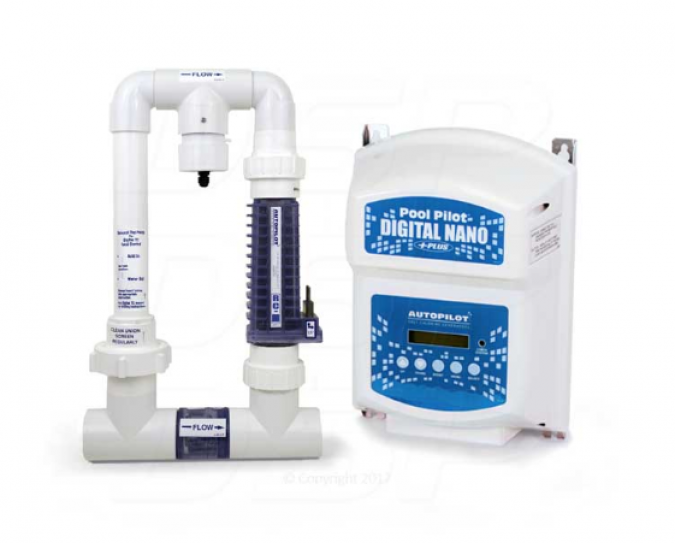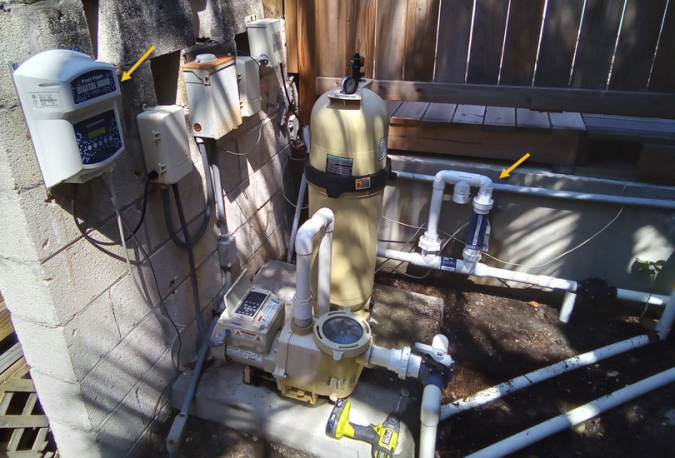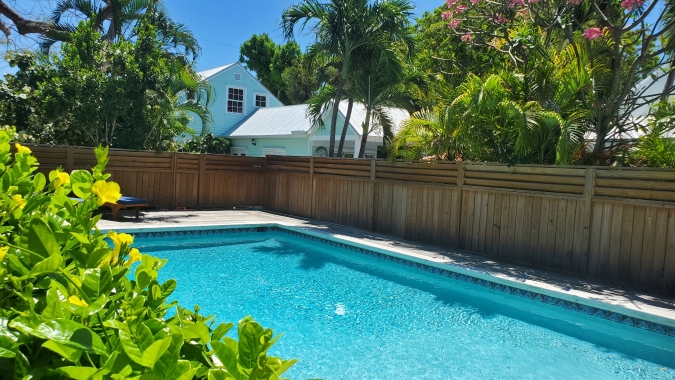Is the added expense of converting your chlorine pool to a saltwater pool worth it? According to Pool & Spa News, since 2016, seven out of ten new pools in the US have been saltwater pools. Is there a measurable positive difference in the lifecycle of the pool's surface and its filtering equipment, in the need to maintain and balance the water quality through regular cleaning, in the color and clarity of the water, in the feeling of the saltwater against your skin and in the health of your skin?
_________________________________________________________________________________________
When I bought my house in 1984, the 15,000 gallon backyard outdoor pool had a plastic liner. The liner was badly torn and the pool was filled with 3' of brackish sludge; home to slimy critters, skitoes and years of tree and leaf debris. Fortunately, the rectangular concrete body and deck were in good condition. I found a pool company that was going out of business and they agreed to drain the swamp, clear the mire and install a proper concrete interior surface over a wire frame. The pool was resurfaced in 2005 and looks great still. It has always been cared for through a once-a-week professional service, me the rest of the week and always with chlorine.
My trusty pool man recently recommended a saltwater system so I said why not.
Salt Chlorine Generator
Conversion to saltwater cleaning is simple. A Salt Chlorine Generator (SCG) is installed in the PVC return line that runs directly from the filter back to the pool. What does the SCG do?
Salt water chlorination uses electrolysis to convert dissolved salt in the pool water into chlorine gas or its dissolved form, hypochlorous acid, which are commonly used as sanitizing agents in pools.
As salt water travels through the swimming pool’s circulation/filtration system, the water passes through the pump, filter, heater and then the salt chlorine generator (SCG). The SCG is shaped like a can of tennis balls and inside is a 6" long compartment (aka Conversion Cell) that contains multiple flat, thin titanium blades. As the salt water flows through the cell, a low-voltage direct current is applied to the blades inside the cell, initiating electrolysis. Through electrolysis, the saltwater breaks down into hydrogen gas and hypochlorous acid (aka Liquid Chlorine). The hydrogen gas leaves the swimming pool water in the form of small bubbles. The hypochlorous acid sanitizes the swimming pool water, ultimately reverts back into salt, and the process repeats.
Are there any tangible Pros and Cons to a Saltwater pool?
Like anything, if you take care of your chlorine pool the water will stay clean and clear and you will not experience any chlorine odors, stinging or fading of your swim suit. Keep the pump and filter working properly, keep tree debris out of the pool and all will be well. It's not that hard. What then are the benefits of a saltwater system?
Pros
- Since the chlorine level is being maintained at a consistent and continuous level, the surface of the pool will last longer and not be as subject to the negative effects of occasional chlorine shock.
- The cleanliness and clarity of the pool will be more consistent and there will be fewer microscopic contaminants.
- SCG also introduces chlorine at a more neutral pH level, which requires fewer chemicals to maintain your pH.
- The pool's chemical balance will be easier to maintain.
- The water will feel softer on the skin.
Cons
- The initial cost for the SCG, several bags of salt to put into the pool and the labor to install will likely exceed the cost for a year's worth of regular chlorine treatment.
- Every 4-6 years the cell that contains the titanium blades will have to be replaced. Minimal cost and not more than 10 minutes to unscrew the old and screw in the new.
- A minute increase in your electrical bill
By the end of the 2nd year of use, the initial cost of the SCG should be recovered due to the significant reduction in the use of chlorine.
How does the saltwater feel?
Saltwater filtration is not salty water. Saltwater pools' salinity level is only 3,000 parts per million (ppm). By comparison:
- The ocean is 35,000 ppm.
- Tears are 9,000 ppm.
- Taste starts at 4500 ppm
- Margueritas at Salute! are, I don't know, I don't put salt on the rim of my margueritas.
Conclusion
When I bought my house in 1984, the pool had been grossly neglected and looked like the Okefenokee Swamp. It was the First project to tackle when I moved in. I use my unheated pool 220+ days a year. There is nothing like jumping into the pool at the end of a hot day, or gliding in, in the middle of a warm night. You want your pool to be relaxing, comforting and trouble free.
The silky smooth water generated by a Salt Chlorine Generator is definitely the way to go.
Thank you to The Pool Man of Key West for over a dozen years of completely reliable and professional service. Expert cleaning, maintenance and upgrades for the entire pool system.
If you have any comments or questions, please contact me here.
Good luck.
Additional Sources:





